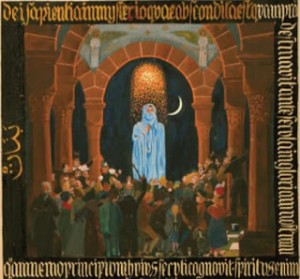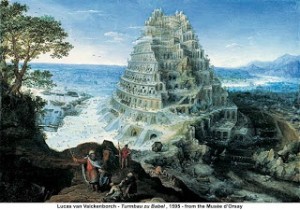“As far as we can discern, the sole purpose of human existence is to kindle light in the darkness of mere being.”
– C.G.J.
Here’s a fun game, let’s choose the most influential magician of the 20th century. My short list includes: Samuel Liddell MacGregor Mathers, Aleister Crowley, Israel Regardie, Dion Fortune, and Peter J. Carroll. I could go on and I’m sure you could pick more. All of them would be valid. The one that currently rises to predominance in my pantheon seldom makes the list. Yet his influence can be found within the works of all of the above. That may be due to the magical subculture snubbing those who smell to strongly of science and or orthodoxy. After all, what kind of hidden knowledge(1) can be imparted from a person they teach college courses on? It’s not his fault occult thinkers don’t count him amongst their brethren. He considered himself an alchemist. Maybe it’s because he never joined a mystical order. I can relate to that.
For me, no one explains why magick works better than Carl Gustav Jung. Jung’s discovery of the collective unconscious and synchronicity aptly and succinctly describe the essence of magical theory. Even better, he does it without having to relate it to a singular belief structure.
Which brings me to my quest to understand symbols. I approach them from a Jungian point of view. I believe the power of a particular symbol(2) derives from its ability to connect the users unconscious to the collective unconscious. How well a symbol does this determines its efficiency as a magical tool. If a magus can determine which tool set works best for them, they can significantly increase their power.
This perspective is also derivative of a belief that “magic is to be performed to get results”(3). From that point of view, it should be one of the major goals of any magus to develop a personal and powerful symbol system, to assist them in their practice.
So the same questions still apply. How do we pick or create the most advantageous magical symbols? That’s what this blog is all about.
(1) I may have expressed my opinions on “hidden knowledge” before. It doesn’t exist anymore.
(2) And by symbol I mean any phenomena that can be used to effect consciousness.
(3) Peter J. Carroll, Considerations on the Philosophy and Practice of Magick.
Addendum
I spent much time contemplating Jung before my last blog post. Jung said he experienced two events of synchronicity in his lifetime. This being one of them:
“A young woman I was treating had, at a critical moment, a dream in which she was given a golden scarab. While she was telling me this dream, I sat with my back to the closed window. Suddenly I heard a noise behind me, like a gentle tapping. I turned round and saw a flying insect knocking against the window-pane from the outside. I opened the window and caught the creature in the air as it flew in. It was the nearest analogy to a golden scarab one finds in our latitudes, a scarabaeid beetle, the common rose-chafer (Cetonia aurata), which, contrary to its usual habits had evidently felt the urge to get into a dark room at this particular moment. I must admit that nothing like it ever happened to me before or since.”
After writing my post on Jung I went to perform an important ritual to dedicate a new magical tool. When I finished, I sat down to have a glass of mead and unwind, listening to an audio book on Jung’s theories. Suddenly, I noticed a black shape moving across my shoulder. I jumped up, took off my shirt, and searched for the intruder. I found him, a black beetle, still attached to my shirt. Needless to say, I let him go. I’m at a loss of words on how I feel about it. Lucky? Blessed? Impressed by my own ability? Maybe it’s just the universe saying I’m on the right path.

